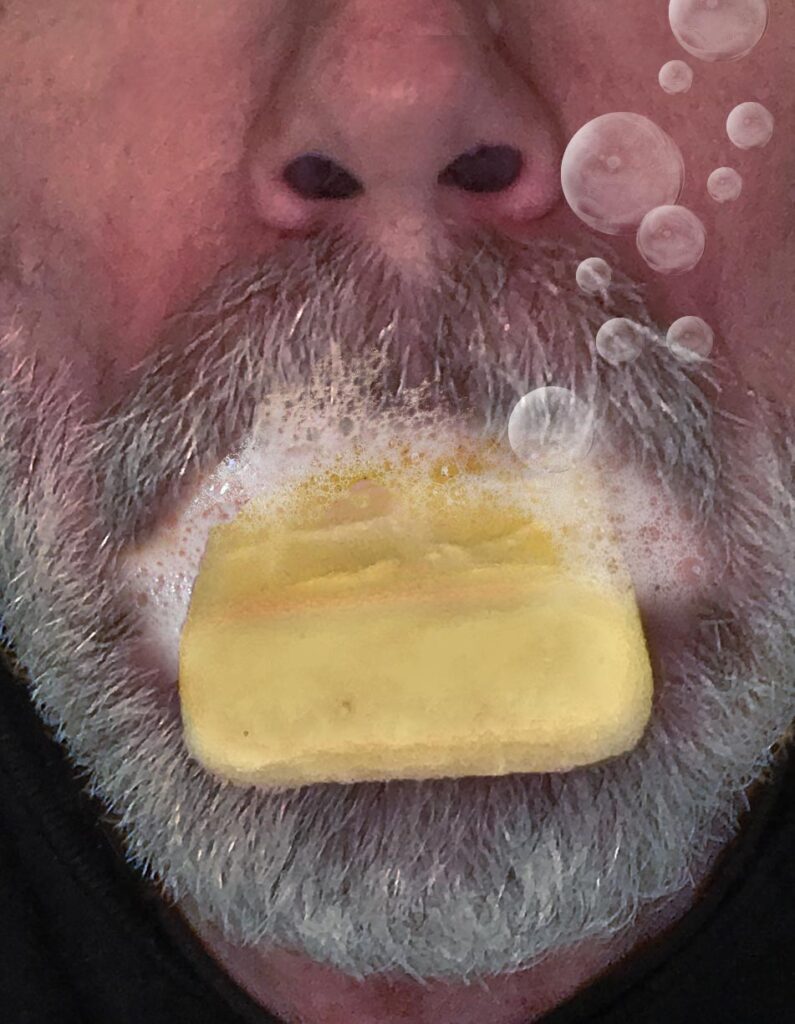No Shit
A childhood friend of mine, in her comment on my first blog post, expressed surprise at my having written the word “bullshit,” since she never heard me use such language back in the day. She’s right: Throughout my childhood and adolescence, my mouth remained scrupulously clean. It’s not as if I didn’t know the words. It’s just that — and I’m not entirely sure how to put this — I never felt like those words were mine to use. I’ve never easily become part of a group or a culture, and my stance has often been that of an anthropologist, observing others without sensing any relationship between their lives and my own.
As a child, I knew that other boys my age were playing sports, flipping baseball cards, and watching espionage dramas like “The Man from U.N.C.L.E.” and “I Spy.” In high school, I knew that fellow students were drinking beer, using drugs, and having sex. It’s not that I didn’t want to do those things, or even that I did want to do those things and had some reason not to. It simply never occurred to me that those activities had anything to do with me. They were just things that people did. Swearing fell into that category.
That sense of remove, by the way, extended beyond the world around me; it applied to literature as well. I devoured books from the time I learned to read, but each book took place within its own world, which I had no reason to believe had any relationship to my own. I remember, early on, reading a book in which two friends are sent by their families to military school, and are thrilled to discover that they’ve both been assigned to reside in Lockhammer Hall. “Okay,” I remember thinking, “this book takes place in a world where people live at their school and sleep in a hallway.” Having accepted that premise, I could go on with the story. It was not until my freshman year of college that I realized that there really were people who went to boarding school, that it wasn’t just something that happened in novels.
That’s why I found it particularly irritating when exams in high school English classes included a question along the lines of “What did you learn about life from reading this book?” The obvious answer was “I didn’t learn anything about life — the things that happened in the book were made up!” (I soon discovered that this wasn’t an acceptable answer, so I had to learn to, um, bullshit my way through.)
As I got older, although I never really developed the capacity to feel like I was part of a culture (or part of the world of a book), I did start learning to adopt other people’s customs — to engage in cultural appropriation, if you will. Thanks to some good friends in college, I learned to appreciate the joys of alcohol and marijuana, I was initiated into the world of sexual relationships, and I tentatively adopted a few mild swear words. I began to feel almost like a normal person.
Like the friend whose comment inspired this essay, people were sometimes surprised at the ways college had changed me. I vividly remember being home on a break, accidentally dropping some things that I was carrying, and exclaiming, “Oh, shit!” My mother emerged from the next room, her eyes wide and her jaw dropping.
“Thank God!” she said. That is not the reaction I expected. “All these years,” she continued, “I’ve been watching what I say, being careful not to swear, because I didn’t want to corrupt you. Now that you’ve picked it up somewhere else, I can relax!” Language became much looser at family gatherings after that.
I have to admit, though, that I still have never become comfortable with the word “fuck.” (I cringe even to have written it here.) It’s such a versatile and expressive word, and I admire people who can wield it skillfully, but it’s just never felt natural coming out of my own mouth. Feel free to use it in my presence, though — I’m already as corrupted as I’m going to get.
